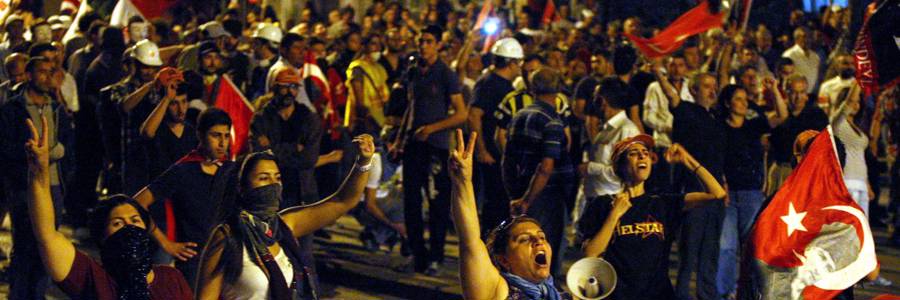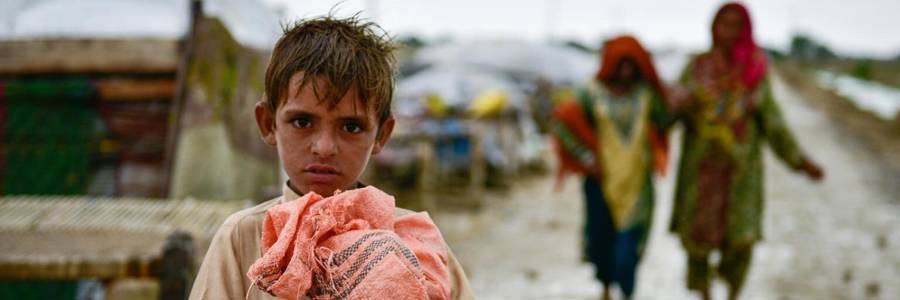Basta! Brazilians Move from Apathy to Action
Posted Friday, 20 Mar 2015 by Pinar Tank
In Rio de Janeiro, when the going gets tough, the tough… often go to the beach. The expanse of blue shoreline lined with small botecos (bars) is a sanctuary from the troubles of everyday life and according to some Cariocas – natives of Rio – the explanation for their relaxed attitude. On 15 March, they turned up – in droves – at Copacabana beach. Cariocas came dressed in the national colors green and yellow with some sporting the slogan “Basta” (Enough). The same scene was repeated in 160 towns across Brazil with numbers said to be as high as 1.5 million. Only this time, it was to protest against the state of the country and the corruption that has become synonymous with Brazilian political life. Most particularly, their anger turned against President Dilma Rousseff whose Partida Popular (Worker’s Party – PT) is seen to embody a culture of impunity.

To the outside observers, it is a mystery that these demonstrations come only five months after Rousseff was elected to a second term in office in a closely contested election. This is particularly so as allegations of corruption between the national oil giant Petrobras and the Roussef’s PT were already widespread. The elections in October took place under a general feeling of apathy with many Brazilians choosing not to vote despite voting being mandatory. Many wondered what had happened to the spirit that led people out into the streets in the summer of 2013, demanding improvements to Brazil´s endemic problems of health, education and infrastructure.
Now, it would seem that apathy has turned into action as details on the amounts siphoned off to politicians are contrasted with the rising costs of living for ordinary Brazilians. So far, 34 sitting politicians are under investigation, including speakers of both houses of Congress. On March 16, a day after the demonstrations, João Vaccari, the PT treasurer was charged with soliciting hundreds of millions in donations in bribes from Petrobras executives. Thus it comes as no surprise that one of the slogans in the demonstrations has been “Fora Dilma” (Out Dilma). The call for impeachment has been prominent in the discussions although as commentators point out, there is no legal basis for impeachment. That being said, impeachment decisions are made in Congress where the PT is presently in a weakened position. Calls for impeachment are common in Brazil’s history of civilian presidents. However, they beg the question “what next?” As a Brazilian friend commented in exasperation: “We impeach Dilma and then what? The vice-president is even worse.”
Beyond the issue of corruption in the PT, there is a general dissatisfaction with the direction that Brazil is going in. Economically teetering on the edge of recession, there has been a rise both in unemployment and in the price of important commodities such as electricity (up by nearly 30%) and petrol (at a time when the petrol price is in free fall). Inflation is now at its highest for nearly a decade. In an effort to remedy the flailing economy and restore investor confidence, President Rousseff appointed Joaquim Levy, a Chicago trained banker, as Finance Minister in November. His liberal economic policies have ushered in austerity measures before a seemingly unprepared public. Electricity subsidies have been removed and a fuel duty put in place. These have a very real impact, particularly on the lives of poor Brazilians, the PT’s demographic, to whom Dilma made rosy election promises. The significant turnout in Recife in Brazil´s Northeast – a PT stronghold, illustrates to which extent dissatisfaction cuts across party lines.
Dissatisfaction might be one of the few points uniting the left and right in Brazil. Their solutions, however, are radically different and span the spectrum from reform to removal of the PT government. Nonetheless, it would be a mistake to think that the demonstrations are solely against the sitting regime.
In a symbolic nod to Brazilian democracy, the date for the protests, 15 March, was chosen to commemorate the re-establishment of democracy 30 years ago after Brazil’s long military dictatorship (1964 – 1985). Ironically, among the protestors there were also marginal groups with slogans in support of military intervention. (In fact, the fear of right-wing calls for intervention, and the invalidation of the electoral process, was also one of the reasons some liberals gave for not taking to the streets). Despite its flaws, however, today’s Brazil has institutions that are stronger and less politicized than its turbulent neighbors Venezuela and Argentina. This was reflected in President Rousseff´s response to the demonstrations. In a press conference the following day, she stated, “Yesterday, when I saw hundreds and thousands of citizens speaking out, I could not help thinking that it’s worth fighting for freedom, it’s worth fighting for democracy. This country is stronger than ever.”
Among those supporters on the left who took to the street, this resonates well. When asked what they hoped to accomplish by demonstrating, one commented: “I hope to show my commitment to democracy, my respect for the polls, to demonstrate with others who think like me – that we want to keep a politics that supports those that need it most, with a better distribution of wealth, so that the riches of this country do not remain in the hands of a small prejudiced elite.”
But Rousseff will need more than rhetoric to carry the Brazilian people. While the promise of reforms is enticing, the low popularity of the government in a difficult economic climate and the determination of the opposition to bring it down (efficiently assisted by large media networks such as Globo), spell trouble on the horizon. The call for military intervention by a marginal right wing group is primarily a reflection of the lack of trust in civilian politicians. It cannot be taken seriously, but its root causes should not be ignored either.










